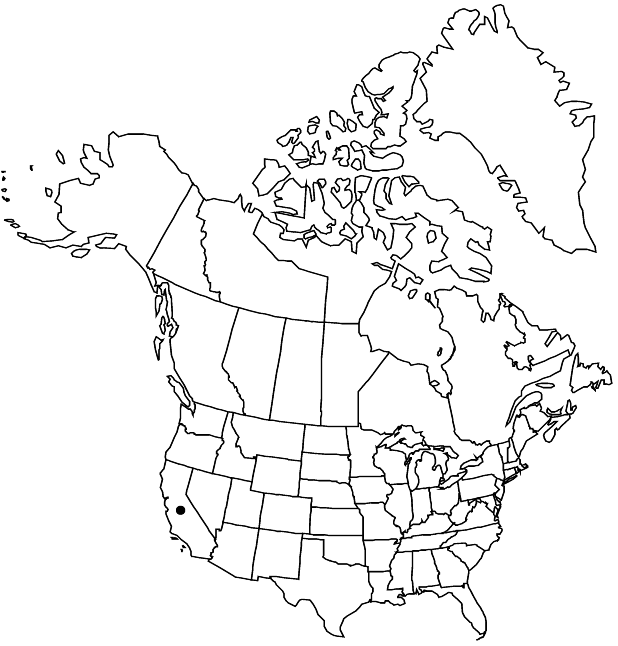Difference between revisions of "Dudleya blochmaniae"
Leafl. W. Bot. 7: 110. 1953,.
FNA>Volume Importer |
imported>Volume Importer |
||
| (5 intermediate revisions by 2 users not shown) | |||
| Line 6: | Line 6: | ||
|place=7: 110. 1953, | |place=7: 110. 1953, | ||
}} | }} | ||
| − | |basionyms={{Treatment/ID/ | + | |special_status={{Treatment/ID/Special_status |
| + | |code=C | ||
| + | |label=Conservation concern | ||
| + | }} | ||
| + | |basionyms={{Treatment/ID/Basionym | ||
|name=Sedum blochmaniae | |name=Sedum blochmaniae | ||
|authority=Eastwood | |authority=Eastwood | ||
| + | |rank=species | ||
| + | |publication_title=Proc. Calif. Acad. Sci., ser. | ||
| + | |publication_place=2, 6: 422, plate 53. 1896 (as blochmanae) | ||
}} | }} | ||
|synonyms={{Treatment/ID/Synonym | |synonyms={{Treatment/ID/Synonym | ||
|name=Hasseanthus blochmaniae | |name=Hasseanthus blochmaniae | ||
|authority=(Eastwood) Rose | |authority=(Eastwood) Rose | ||
| + | |rank=species | ||
}} {{Treatment/ID/Synonym | }} {{Treatment/ID/Synonym | ||
|name=Hasseanthus variegatus var. blochmaniae | |name=Hasseanthus variegatus var. blochmaniae | ||
|authority=(Eastwood) Jepson | |authority=(Eastwood) Jepson | ||
| + | |rank=variety | ||
}} | }} | ||
|hierarchy=Crassulaceae;Dudleya;Dudleya subg. Hasseanthus;Dudleya blochmaniae | |hierarchy=Crassulaceae;Dudleya;Dudleya subg. Hasseanthus;Dudleya blochmaniae | ||
| Line 51: | Line 60: | ||
-->{{#Taxon: | -->{{#Taxon: | ||
name=Dudleya blochmaniae | name=Dudleya blochmaniae | ||
| − | |||
|authority=(Eastwood) Moran | |authority=(Eastwood) Moran | ||
|rank=species | |rank=species | ||
| Line 62: | Line 70: | ||
|publication title=Leafl. W. Bot. | |publication title=Leafl. W. Bot. | ||
|publication year= | |publication year= | ||
| − | |special status= | + | |special status=Conservation concern |
| − | |source xml=https:// | + | |source xml=https://bitbucket.org/aafc-mbb/fna-data-curation/src/2e0870ddd59836b60bcf96646a41e87ea5a5943a/coarse_grained_fna_xml/V8/V8_390.xml |
|genus=Dudleya | |genus=Dudleya | ||
|subgenus=Dudleya subg. Hasseanthus | |subgenus=Dudleya subg. Hasseanthus | ||
Latest revision as of 22:43, 5 November 2020
Corms subglobose to oblong, 0.7–3.5 cm × 5–20 mm. Leaves 3–50; petiole 0.3–1.5 mm wide, to 1/3 as wide as blade; blade green, oblanceolate or clavate-oblanceolate, 1–6 cm × 2–8 mm, 1–4 mm thick, base 1–4 mm wide, apex subacute to rounded, surfaces sometimes ± glaucous. Inflorescences: cincinni 3–10-flowered, 1–6 cm; floral shoots 3–12 cm × 0.5–2 mm; leaves 8–25, ascending, blade triangular-ovate to -lanceolate, 0.5–2.5 cm × 3–10 mm, 2–4 mm thick, apex rounded to subacute or obtuse. Flowers with musky, sweet odor; petals connate to 1 mm, widely spreading from near middle, white, ± yellowish green at base, red-lineolate on keel, drying purplish, elliptic, 6–10[–12] × 2–3.5[–5] mm, apex acute, corolla 8–20 mm diam.; pistils separate, ascending; ovary 3–4.5 mm; styles 1–1.5 mm. Follicles widespreading, with adaxial margins nearly horizontal.
Distribution

Calif., nw Mexico.
Discussion
Subspecies 2 (2 in the flora).
Selected References
None.
Key
| 1 | Rosette leaves 3-12, blade oblanceolate, 1-4(-6) cm; inflorescence leaves not or slightly glaucous. | Dudleya blochmaniae subsp. blochmaniae |
| 1 | Rosette leaves 15-30(-50), blade clavate-oblanceolate, 1-3.5 cm; inflorescence leaves gray-glaucous. | Dudleya blochmaniae subsp. insularis |